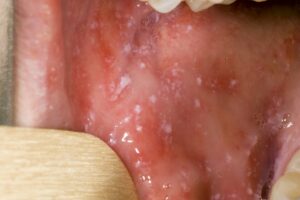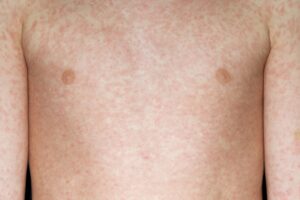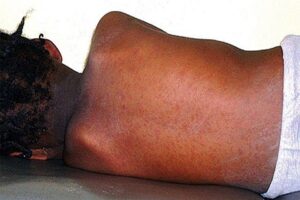Measles and MMR vaccines
Cases of measles are rising in the North West.
Measles is an infection that spreads very easily and can cause serious problems in some people.
If you think you or your child may have measles please call your GP surgery. Please do not go to your GP, walk-in centre or any other healthcare setting without calling ahead, as measles is very infectious.
Measles usually starts with cold-like symptoms, followed by a rash a few days later. Some people may also get small spots in their mouth.
The first symptoms of measles include:
- a high temperature
- a runny or blocked nose
- sneezing
- a cough
- red, sore, watery eyes
Spots in the mouth

Small white spots may appear inside the cheeks and on the back of the lips a few days later. These spots usually last a few days.
The measles rash
A rash usually appears a few days after the cold-like symptoms.

The rash starts on the face and behind the ears before spreading to the rest of the body.
The rash looks brown or red on white skin. It may be harder to see on brown and black skin.

It is very unlikely to be measles if you’ve had both doses of the MMR (measles, mumps and rubella) vaccine of if you’ve had measles before. See other rashes in babies and children
Having the MMR vaccine is the best way to prevent serious illness. It is safe and effective and two doses are enough to provide long-lasting protection from measles, mumps and rubella.
NHS vaccinations and when to have them
It’s important that vaccines are given on time for the best protection.
If you or your child missed a vaccine, contact your GP to catch up.
You can check NHS vaccinations and when to have them on the NHS.uk website here.
More information on measles can be found on the NHS.uk website here.
